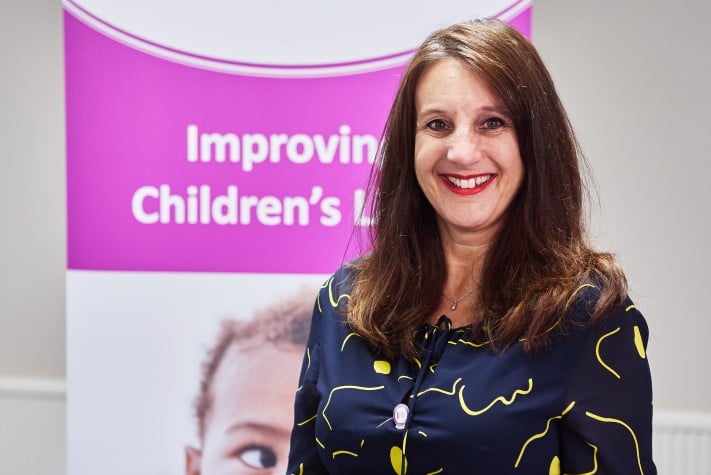30th August 2023
In this Voices blog, Philippa Bishop iHV Head of Training shares an update of a recent Round Table she attended on Sudden Unexplained Death in Childhood (SUDC).

Philippa Bishop – Head of Training, Institute of Health Visiting
It is utterly unimaginable – the worst thing that can ever happen to a parent – the loss of a baby, infant or child. Through her own unique and devastating experience of child loss, Dr Emily Cooper (@Criminographer) raises awareness of Sudden Unexplained Death in Childhood or SUDC (pronounced “sud-see”). Using her X (formerly known as Twitter) account, she vividly chronicles her journey through child death. Emily’s son Alexander died suddenly and without warning at the age of 3 years on Boxing Day 2021. Without a clear cause for his death, Alexander is recorded as dying from SUDC, which is a category applied to child deaths between 1 and 18 years of age which remain unexplained after a thorough investigation is conducted.
From her posts, I have learned much about the complexity of grief and trauma resulting from SUDC and realised how little most people know about it compared to Sudden Infant Death Syndrome (SIDS). Unlike SIDS, there is currently no known way to reduce the risk of SUDC. However, there is a role for health visitors to support parents knowledgeably at the time of loss and in the future through any potential subsequent pregnancies.
With Emily’s experience in mind, I was pleased to represent the Institute of Health Visiting (iHV) at the first national Round Table meeting on Sudden Unexplained Death in Childhood on 26 July 2023 in London. The meeting was convened on the back of a Westminster Hall debate led by the Rt Hon Kwasi Kwarteng MP to bring together expert organisations to discuss SUDC. The aim of the Round Table was to agree on possible actions, both collective and within organisations, to improve training and awareness to improve care. Coordinated by a collaboration of NHS England, the National Child Mortality Database (NCMD) and the charity SUDC UK, it was attended in-person by representatives of over 20 different professional organisations. We heard from Nikki Speed, a bereaved parent to Rosie, co-founder and CEO of SUDC UK, and Julia, mum to Louis. Both spoke candidly about experience of their losses and the impact on the whole family, and their need for coordinated, thoughtful and timely processes and care in the aftermath.
Approximately 40 children are affected each year in the UK and SUDC is a leading category of death in children aged 1-4 years. There are currently just 60 published papers relating to SUDC, compared to over 13,000 on SIDS. The emerging profile of children most affected are aged between 1-2 years, male, found prone having died in their sleep, with normal developmental progress following a recent illness that isn’t found to explain the death.
Like many of the professions represented at the meeting that day, I was aware of the knowledge gap around SUDC for the health visiting workforce and how this will impact practitioner confidence in supporting families who experience this type of loss. The iHV is committed to ensuring that the health visiting workforce is equipped with the knowledge and skills to support families. We have considered what we can offer so that practitioners are better prepared to walk with a parent on the long journey ahead should the worst happen – every family is different, and support needs to be tailored to their individual needs. To do better we must know better.
The iHV has committed to support the Round Table objectives by:
- Developing a Good Practice Point on SUDC for health visitors – look out for this new addition coming soon to our fabulous library of resources for iHV members.
- Providing an iHV Insights webinar on this topic – look out for the date in early 2024 ahead of the SUDC Awareness Week planned for March 2024.
We look forward to seeing you there.
In the meantime, I would encourage you all to review the excellent short 6 minute film from SUDC UK: SUDC UK (Sudden Unexplained Death in Childhood) – Today we will make a difference
Also, go to their website for more information on SUDC and the support offered to families: https://sudc.org.uk/.
You can also look more closely at the data and reporting in the NCMD Thematic Report on SUDC published in December 2022.
To the memory of Alexander, Rosie, Louis and all children and families affected by Sudden Unexplained Death in Childhood #SUDC #Childloss
Philippa Bishop Head of Training – Institute of Health Visiting





